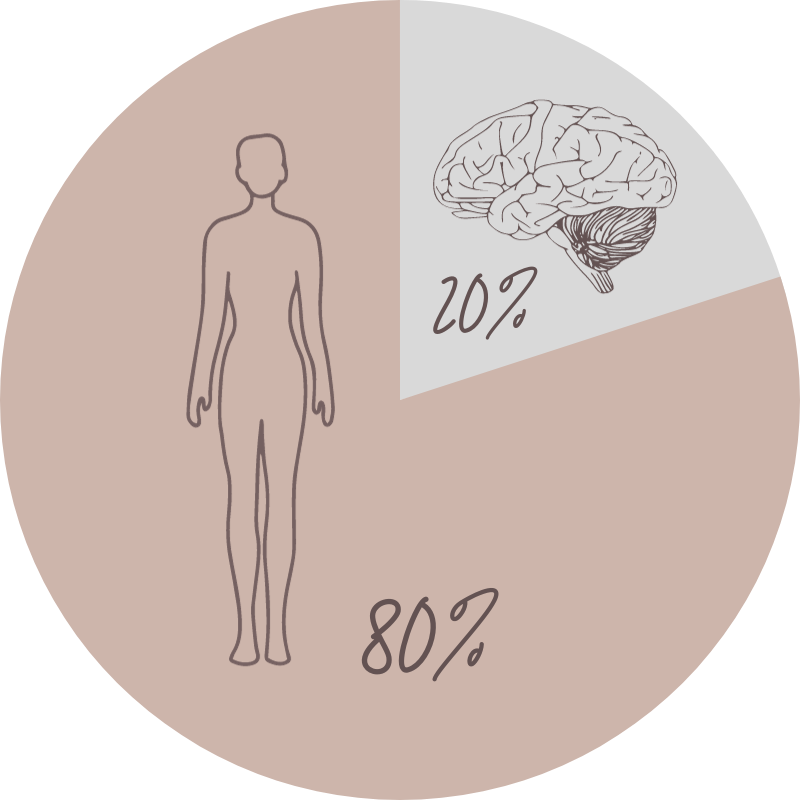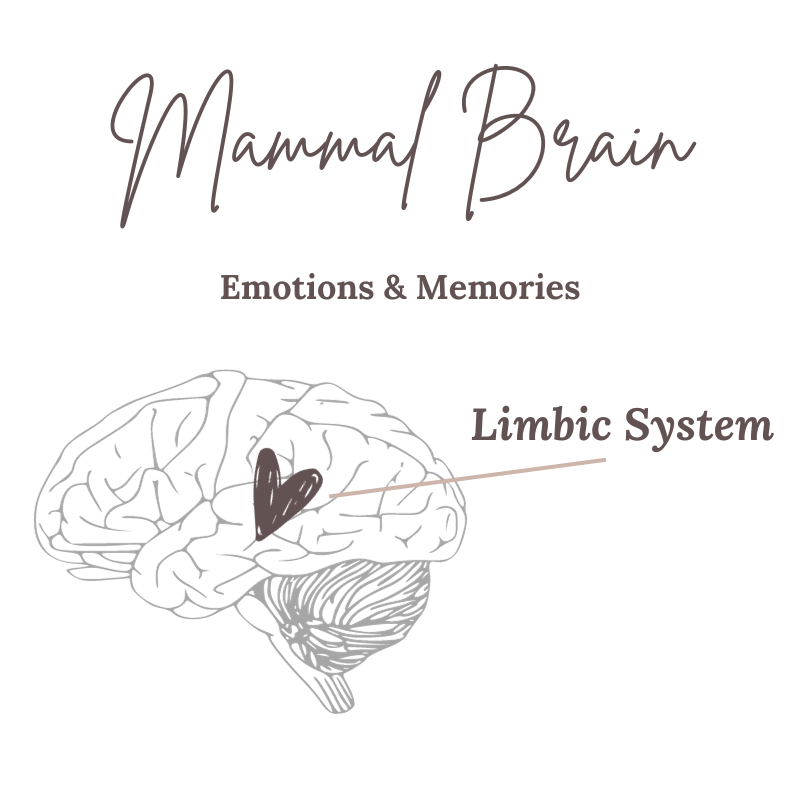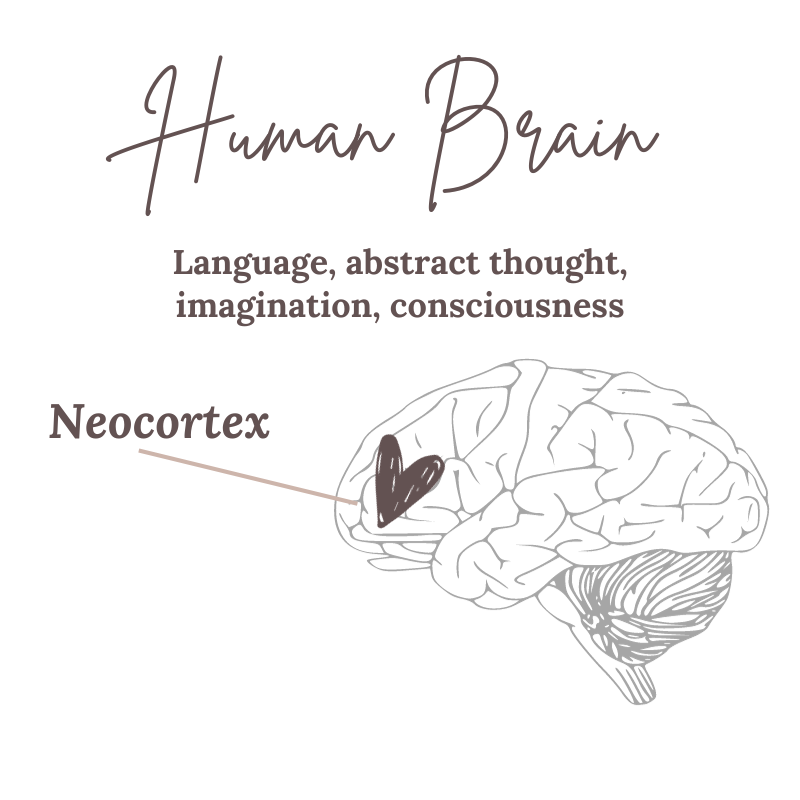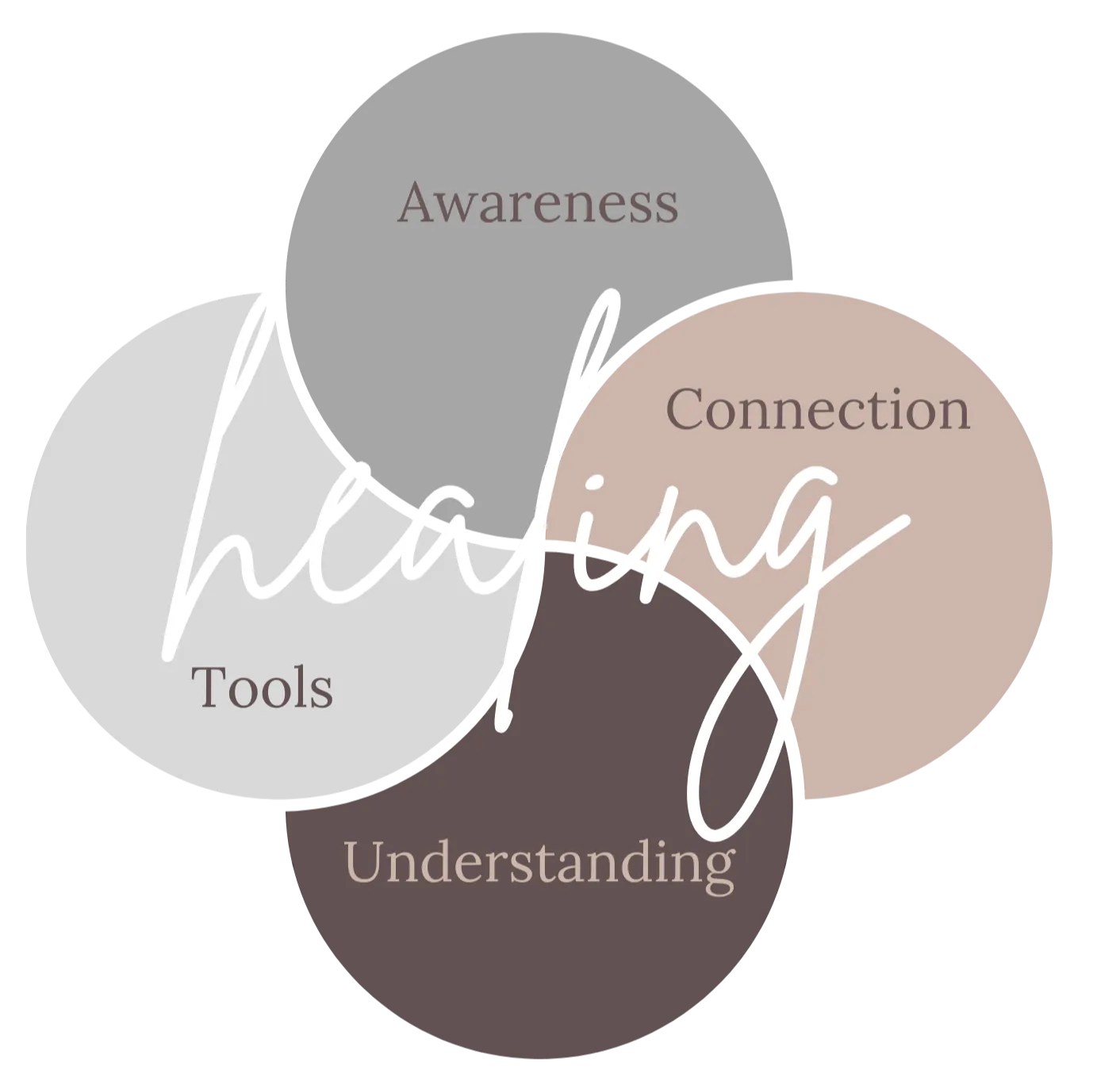Learn About My Method of Somatic and Trauma Informed Coaching
My Approach: Holistic vs Mental Health
I am not a mental health practitioner, I am a nervous system specialist.
I believe the mind and body are very much connected and communicating with each other and should not be treated in an isolated manner, but a holistic approach, taking into account both the mind and body. It’s very different than psychotherapy because they most often only use a top-down approach (because the cognitive brain is their wheelhouse, and mine is your physiology and nervous system and the subsequent impact on the brain).
I focus on bringing your nervous system into regulation, because your nervous system is where the trauma is stuck and stored. It is what is creating the reflexive behaviors that make you feel stuck in cycles where you logically know what’s wrong but can’t seem to change anything. It is also what is driving the thoughts and beliefs that make up your mental health.
Most everyone I worked with has been in traditional talk therapy, counseling or coaching before… and didn’t see the results they were hoping for.
The reason for this is likely because those modalities are not trauma informed or effective for healing trauma. They are primarily focused on working with the cognitive part of your brain (your beliefs) and/or changing your behavior, without discovering and healing the root cause.
In the communication between your brain and body, your body is taking up 80% of the conversation.
Did you know that 80% of the information exchanged between the brain and body comes from the body ➡️ to the brain?
So when you’re working with the cortex, i.e. beliefs, you’re only working with 20% of the “problem”.

A “top down” approach only works with 20% of the problem.

Traditional talk therapy, counseling and traditional life coaching are referred to as a “top down” approach or modality. They are attempting to work with the cognitive brain (think willpower, changing your beliefs, talking about your past, etc) to change behaviors or get the desired result. This has a place and can be beneficial, as long as your cognitive brain (neocortex) is online. But it’s not always effective, because it’s only working with 20% of the problem and because the cognitive brain is "offline" when we are triggered.
The moment our nervous system feels unsafe (ie we are "triggered") our "survival brain" (Reptilian brain) takes over and begins running the show. This is when "top-down" approaches lose their efficacy–it doesn't matter what your cognitive brain KNOWS. Our survival brain will override it every time.
Working with the body/nervous system/subcortical (below cortex/conscious thinking) brain are considered a “bottom up” approach, because we’re working directly with the 80% that’s activating those undesired behaviors. You can think of it as working with your subconscious.
To keep it simple (it’s much more complex than this), the brain is made up of 3 key regions:
- Survival/Reptilian/Primal
- Limbic/Mammalian/Emotional
- Neocortex/Primate/Logic & Reasoning



Willpower is no match for survival instincts.
Traditional talk therapy, counseling and coaching are all targeting the Neocortex (where logic, reasoning, analytics, cognition, beliefs, communication, language and perception are stored) to change your behavior in order to get you the desired result.
You can make some great progress working with this part of the brain, which typically looks like trying to change your beliefs and therefore your behaviors with willpower.
However, willpower is no match for our survival instincts.
This part of your brain (neocortex) is completely offline anytime you experience trauma, or when your body is reminded of past trauma, for example, when you’re triggered.
During trauma, your body, nervous system and brain are too overwhelmed and flooded to make sense of what is happening.

Working with the body/nervous system/survival brain is considered a “bottom up” approach, because we’re working directly with the 80% that’s activating those undesired behaviors.

Trauma creates reflexive and protective response patterns
In those "unsafe" moments your survival/reptilian brain is calling the shots based on primal instincts (think fight, flight, freeze or shutdown). It’s not until your body senses that the event is over and you are back to safety that it will bring the cortex back online to make meaning (create a belief) about what happened.
So if you’re trying to change reflexive, instinctual responses and behaviors (like anxiety, over analyzing, hypervigilance, people pleasing, procrastination, overreaction, defensiveness, etc.) you’re going to want to work directly with the Reptilian brain and body/nervous system.
Ready to start healing?My Unique Approach
In my practice, I use a combination of “top down” and “bottom up” approaches, resulting in lasting change and transformation. I prioritize working with the nervous system through a modality called Somatic Experiencing® which emphasizes the body.
If you’ve tried life coaching or talk therapy and didn’t get the results you wanted, my program may be just what you’re missing.
I am on a mission to help highly resilient and ambitious women just like you feel empowered to heal from past pain and traumas.
Learn more about CortneyTraining & Education
Experiencing trauma alone is not enough to help other people navigate and heal from theirs. Rest assured, I have had extensive training in my approaches.
You can view my practitioner resume on Learn More About Cortney Page.
I am listed in the directory of Somatic Experiencing Practitioners (SEP) at traumahealing.org and I not only have my Somatic Experiencing Practitioner Certificate that requires an extensive 3 years of training, but I am also a Somatic Experiencing Assistant to Trainings at the Institute.
I am actively under the training and education of the Somatic Experiencing Institute at traumahealing.org. I also have extensive training in other trauma informed modalities such as Somatic Attachment, Internal Family Systems and Polyvagal Theory.
I am trained, educated, and credible in my approach… but what makes me even more credible is that I have endured significant complex trauma and overcome it. So yes, I have lived experience of the pain, but more importantly the healing and training required to be well equipped to help you navigate yours safely and effectively. My coaching practice has also been open since 2019 helping 100s of women (and men) to heal and have testimonies as evidence of that.
Do you take insurance?
Additionally, the reason that insurance won't cover my services is because I have a trauma-informed approach which means I believe the basis of my clients' symptoms are a result of unresolved trauma which creates a dysregulated nervous system. I believe (and there's lots of scientific based evidence to prove) that once you heal the unresolved trauma bound in the nervous system and body (your physiology), the symptoms (like anxiety, depression, ADHD, etc) will subside. I have 100s of client testimonials that would agree. Therefore, I do not believe in the Diagnostic model of the DSM (the Diagnostic and Statistical Manual of Mental Disorders, which is the authoritative basis for mental health disorders and the basis of the pyschotherapy model). I believe all "disorders" are actually symptoms of dysregulation. I do not believe my clients are broken or disordered. I believe their nervous system and physiology is operating exactly as it was designed to in the presence of a perceived threat. Unfortunately, insurance's policy is to bill based on a diagnosis (because they are unfortunately not educated on trauma either).
The unfortunate truth is that the traditional higher education system is very slow in integrating the latest science-based trauma research that informs our approach. Many of my clients are actually pyschotherapists themselves because they themselves don't have the training I do and personally want the results that my clients obtain.
FAQs about Somatic Experiencing
I’ve already done talk therapy or I’ve already worked with a life coach. How is this different?
Sounds like this is going to take a lot of time I don’t have. Is it worth it?
What is Somatic Experiencing®?
What is the Stress Response Cycle?
How is Somatic Experiencing® different from other somatic approaches?
How long have you been in practice?
What is your training in?
Evidence Based Studies
Here are evidence based studies that support our approach:
🔗 Somatic experiencing: using interoception and proprioception as core elements of trauma therapy
🔗 Prevalence of interpersonal trauma exposure and trauma-related disorders in severe mental illness
📁 Serious Mental Illness and Trauma: A Literature Review and Issue Brief
🔗 Depression Is Probably Not Caused by a Chemical Imbalance in the Brain

Join our Email List
Get healing resources and encouragement delivered straight to your inbox in our monthly email newsletter.
We won't send spam. Unsubscribe at any time.

